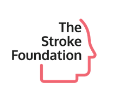Written by : Tristan Carroll, RN
Understanding the Connection between Stroke and Heart Health
February is Heart Health Awareness Month. Your cardiovascular health can be connected to your brain health. Understanding the connection between Stroke and Heart Health can help you to be aware of your risk for developing heart disease which may lead to a stroke. This awareness will inform your preventative measures when protecting your heart and brain health.
Cardiovascular Disease Can Lead to a Stroke
Cardiovascular Disease is the leading cause of death in the United States. The CDC reports that in 2021, 1 in 6 deaths from cardiovascular disease was due to stroke.
Heart Disease can be caused by a buildup of plaque in the arteries. Plaque is made up of a waxy substance called cholesterol. Atherosclerosis is when plaque builds up in the arteries and it can reduce blood flow or completely block blood flow to the heart.
According to the American Stroke Association, the narrowing of your blood vessels due to Atherosclerosis not only affects your risk for heart disease but also contributes to the increased risk of an ischemic stroke. A complication of plaque buildup increases the chances of blood clots forming, which can then cut off blood supply to the brain leading to an ischemic stroke.
Understanding your Risk for Stroke and Heart Disease
Stroke and Cardiovascular Disease are preventable with a heart healthy lifestyle. Understanding the risk factors you might have is important when adopting healthy habits. Healthy Heart habits reduce your risk for heart disease and stroke.
Risk factors for heart disease are very similar to stroke risk factors. There are some things that you cannot change like your age, gender, race/ethnicity, or family history. There are other factors that you can affect by adopting a heart healthy approach. High blood pressure, high blood cholesterol, being overweight, unhealthy dietary choices, sedentary lifestyle, smoking, stress, and poor sleep quality contribute to how healthy your brain and heart will be.
By taking preventive measures, you can lower your risk of developing heart disease and thereby reduce your chances of having a stroke.
- Eating healthy- Eating vegetables-the more colorful the better, fruits with high fiber, fat free/low fat dairy, whole grains, legumes, nuts, fish/lean meats, and using monosaturated/polysaturated fats like canola or olive oil are heart healthy. Reduce sodium, avoid processed foods/meats and lower alcohol intake as well.
- Aim for a healthy weight- Aim for a body mass index (BMI) of 18.5-24.9. Speak with your healthcare provider to understand what is specifically healthy for you.
- Get regular physical activity- Physical activity may help you lose weight. Losing weight will help you to manage high blood pressure/cholesterol. Getting regular exercise will also help improve your stress and overall mental health. Physical activity will reduce other diseases like Stroke and Diabetes.
- Manage stress- Stress can lead to high blood pressure. It can also lead to unhealthy lifestyle choices like smoking or drinking alcohol which increase risks for heart disease and stroke.
- Quit smoking- Smoking contributes to plaque buildup (Atherosclerosis) as well as high blood pressure and high cholesterol which can lead to an increased risk of heart disease and stroke.
- Get good sleep- Sleep supports a healthy heart and brain by healing and repairing blood vessels. Not getting enough quality sleep can increase your risk for heart disease and stroke.
Questions to ask your doctor at your next visit
Following up with your healthcare provider is important to stay proactive when thinking about your heart health. Be your own advocate and have a list of questions ready when you visit your healthcare provider.
- What are my risk factors for heart disease? Remember that there are risk factors you can’t change like age, gender, race/ethnicity, or family history but there are preventative steps you can take to have a healthy heart. Talking to your healthcare provider will help you to plan for your health before it becomes a challenge.
- What is a heart healthy diet? This is an opportunity to discuss with your doctor what eating healthy is for you. Your provider will talk to you about what foods are considered low fat and what kinds of fat are okay to eat. They should help you to better understand food labels so you can make better choices and guide you in making healthier choices when you go out to eat. Your provider should also discuss lowering your salt intake and reducing/eliminating alcohol intake as well.
- What types of physical activity should I be doing? Your healthcare provider will talk to you about what physical activity is safe for you to do. They may go over what exercises to start with and where to safely perform this activity. Your provider should also discuss how long and the intensity of your activity level. If you are just starting out, gentle activity levels are recommended to decrease potential of injury.
- What is my blood pressure and what does that mean for me? If you have an elevated or high blood pressure your healthcare provider may want you to monitor at home with a personal blood pressure monitor. Your provider should tell you how often and when to take your blood pressure. It’s always a good idea to have a notebook to record your blood pressure and bring that to your next visit.
- What is my cholesterol level and what does that mean? Your healthcare provider will talk to you about your cholesterol level and what is considered normal. High-density lipoprotein (HDL) helps you to get rid of cholesterol so it doesn’t build up in your arteries. Low-density lipoprotein (LDL) leaves cholesterol in your arteries and can lead to a buildup of plaque in your blood vessels. Triglycerides are a type of fat your body uses for energy. Your provider should go over the importance of keeping your LDL and Triglycerides low to reduce your risk of heart disease and stroke and the strategies to reach those goals.
- Do I need medications to control my blood pressure or cholesterol? If diet and exercise don’t lower your blood pressure or cholesterol, then medications may be prescribed by your healthcare provider. It’s important to ask what medications you will be taking and how they will work as well as any side effects/interactions that may occur while on these medications. Remember to bring up the side effects you experience instead of just stopping any medication abruptly as that can have further complications.
- If I have co-occurring medical challenges like Diabetes or I am pregnant or planning to become pregnant, what should my concerns be for my blood pressure? Pre-Diabetes/Diabetes is when the body cannot process glucose (sugar) and remains too high in the blood, which can affect your blood vessels and lead to heart disease over time. Avoid further complications by talking to your healthcare provider to put strategies in place and keep your glucose under control. Pregnancy can cause high blood pressure after the 20th week and needs to be monitored by your healthcare provider for both Mom and baby’s health.
- What are the recommendations or action steps for me to take now for my heart health until my next appointment? Your healthcare provider will most likely have recommendations for you to follow between your visit now and the next appointment. Take notes or ask for a print out of your visit summary that includes what changes need to be made as well as any steps or resources you will need. As always, keep the lines of communications open between you and your healthcare provider so that you will be fully supported on your heart health journey.
Sources:
https://medlineplus.gov/stroke.html
https://medlineplus.gov/howtopreventheartdisease.html
https://www.stroke.org/en/about-stroke/stroke-risk-factors/atherosclerosis-and-stroke
https://www.nhlbi.nih.gov/health/heart-healthy-living





